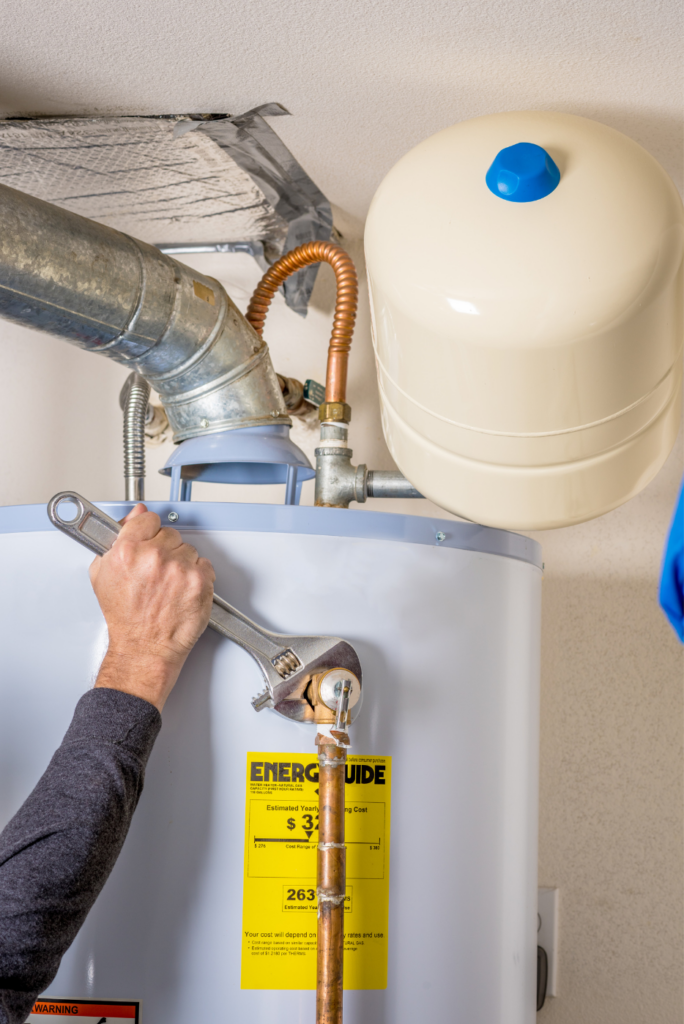The content listed below on the subject of Common Problems with Tank Water Heaters is incredibly attention-grabbing. Don't miss it.

Envision starting your day without your regular warm shower. That already sets an inadequate tone for the remainder of your day.
Every home needs a reputable water heater, yet just a few know just how to manage one. One simple way to maintain your hot water heater in leading shape is to check for faults regularly as well as fix them as quickly as they appear.
Bear in mind to switch off your water heater before sniffing about for faults. These are the hot water heater mistakes you are more than likely to run into.
Water too warm or as well cold
Every hot water heater has a thermostat that determines just how warm the water gets. If the water entering your home is too warm despite establishing a practical maximum temperature level, your thermostat might be faulty.
On the other hand, also cold water may result from a failed thermostat, a damaged circuit, or inappropriate gas circulation. For instance, if you make use of a gas hot water heater with a broken pilot light, you would obtain cold water, even if the thermostat remains in ideal problem. For electrical heaters, a blown fuse may be the culprit.
Not enough warm water
Water heaters come in several dimensions, depending upon your warm water needs. If you lack hot water before everyone has actually had a bath, your water heater is too tiny for your family size. You must think about installing a bigger water heater container or choosing a tankless hot water heater, which uses up much less area and also is much more durable.
Odd noises
There go to least five kinds of sounds you can hear from a water heater, however one of the most usual interpretation is that it's time for the water heater to retire.
Firstly, you need to know with the normal sounds a water heater makes. An electrical heater might appear various from a gas-powered one.
Standing out or banging noises normally imply there is a slab of sediment in your tanks, as well as it's time to clean it out. On the other hand, whistling or hissing audios might merely be your shutoffs letting some stress off.
Water leakages
Leakages could come from pipelines, water links, valves, or in the worst-case scenario, the storage tank itself. Over time, water will certainly rust the container, and also find its way out. If this happens, you require to replace your hot water heater immediately.
Nonetheless, before your adjustment your entire tank, make sure that all pipelines are in location which each valve functions flawlessly. If you still need help determining a leakage, call your plumber.
Rust-colored water
Rust-colored water suggests among your water heater components is corroded. It could be the anode rod, or the storage tank itself. Your plumber will certainly be able to determine which it is.
Lukewarm water
Regardless of how high you set the thermostat, you will not obtain any type of hot water out of a heating unit well past its prime. A water heater's efficiency might minimize with time.
You will also obtain lukewarm water if your pipes have a cross link. This implies that when you turn on a faucet, hot water from the heating system streams in alongside routine, cold water. A cross link is simple to spot. If your hot water taps still run after shutting the hot water heater shutoffs, you have a cross link.
Discoloured Water
Rust is a significant source of filthy or discoloured water. Deterioration within the water container or a failing anode pole might trigger this discolouration. The anode rod secures the storage tank from rusting on the inside and need to be inspected annual. Without a rod or an appropriately functioning anode rod, the hot water rapidly rusts inside the tank. Contact a professional water heater specialist to figure out if replacing the anode rod will certainly deal with the issue; if not, replace your water heater.
Verdict
Ideally, your water heater can last ten years before you require a modification. Nonetheless, after the 10-year mark, you might experience any of these mistakes a lot more frequently. At this point, you must add a brand-new hot water heater to your budget plan.
How To Troubleshoot 3 Common Water Heater Problems in Twin Cities
The Water Heater Is Leaking
A leaky cold water inlet valve A loose pipe fitting A leaky temperature and pressure relief valve A corroded anode rod A cracked tank Turn Off Your Water Heater:
Shut off your gas water heater by turning the gas valve on the unit to the “OFF” position. Shut off your electric water by switching its power off at your electrical panel. Look for a two-pole breaker labeled “water heater” and turn it to the “OFF” position. Move the ball valve connected to the water heater to be perpendicular to the piping at a 90° angle. Look for the Leak:
Depending on whether the water is coming from the tank's top or bottom, you’ll want to look for the leak in different locations.
If the leak comes from the top of the tank, carefully look for water escaping from the cold water inlet valve or loose pipe fittings. Rusted hot and cold water valves can have loose connections with the tank, with water leaking out of them.
https://mspplumbingheatingair.com/blog/how-to-troubleshoot-3-common-water-heater-problems
Do you enjoy reading about Water Heater Repair and Troubleshooting? Create a remark down below. We would be delighted to hear your reactions about this review. We are looking forward that you come back again before long. Are you aware of someone else who is truly interested in Water Heater Repair and Troubleshooting? Be sure share it. I praise you for your time. Kindly come visit our site back soon.
Contact our experts.